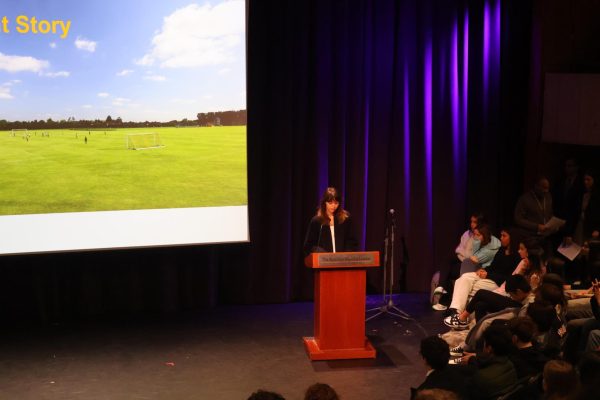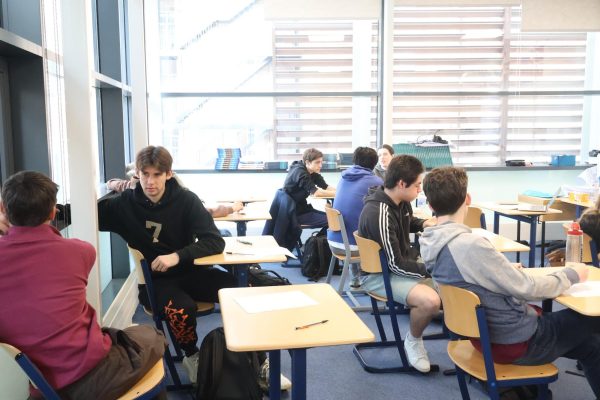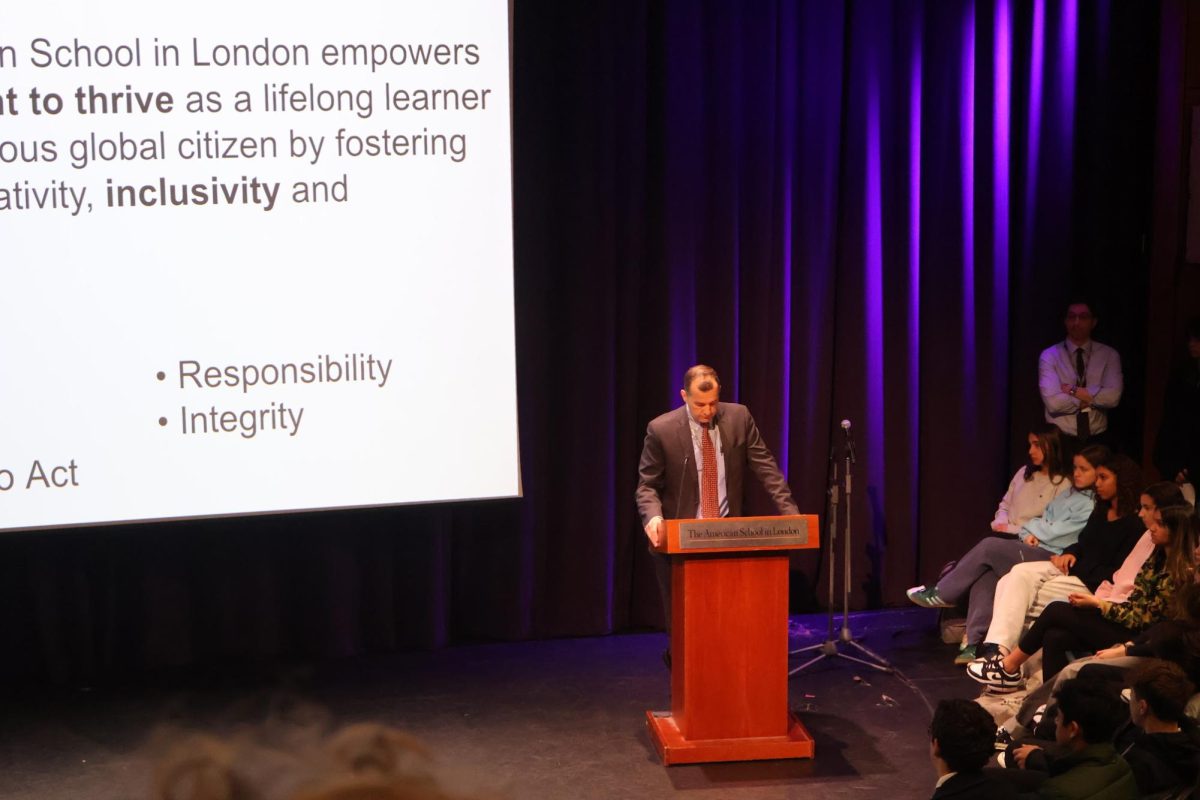The High School gathered in the School Center and Commons March 26 for an assembly about recent incidents of racist behavior across all three divisions of the school. Head of School Matthew Horvat, Director of Student Life Royce Wallace, Interim High School Principal Jack Phillips and High School Assistant Principal Natalie Maisey led the assembly, followed by a 30-minute writing and speaking reflection activity during Period 2 class time.
A team of grade-level deans and administrators decided how to structure the assembly and reflection, which Wallace said was intentionally scheduled on the same day – as opposed to reflecting two days later in advisory – to give students the opportunity to think about the content immediately. He said he has received student feedback that “we have these assemblies and it’s kind of like a one-off,” so the team decided to give students the chance for “processing straight away.”
Wallace said the assembly has been planned for multiple weeks as a follow-up to Horvat’s email to the school community March 12, which mentioned a parent group that came forward with recent instances of racial discrimination. In addition, an email from Phillips sent March 26 about the High School assembly cited recent incidents of anti-Black racism in the Middle School.
Wallace said the assembly serves as a turning point for the student body to address increasingly severe patterns of discrimination.
“It’s a different time,” Wallace said. “We have a more diverse school population, you know. I just think we need to rebuild and we need to repair and we need to restore. I’m hoping that this assembly is kind of like the launching pad for us to begin this work.”
Following remarks from Horvat, Phillips and Wallace on the Code of Conduct and what constitutes an infraction of racial harassment, Gracie Lamberton (’25) read a first-person personal narrative that a Black student anonymously wrote. Lamberton said she was initially unsure when she was asked to read the first-person as a white student, but wanted to ensure that the student body heard their peer’s story.
“People need to hear this,” Lamberton said. “I thought, ‘if it’s going to be me or no one, I have to put myself in this position.’”

The narrative recounted racism the student has repeatedly faced throughout their time at the school. Lamberton said the author’s anonymity should not hinder the audience it was able to reach.
“It can be really difficult to tell your own story,” Lamberton said. “Having someone else read it out and you being able to stay anonymous is really powerful and really important.”
During Lamberton’s class reflection, she said her classmates discussed their experiences with “being othered and treated differently” and posed questions about how to move forward with empathy and respect.
“I mean, how do you teach people to care for each other?” Lamberton said. “It’s difficult. Although, you know, we are going to be having more reflections, we are going to be listening to other students’ experiences, there will be more assemblies talking about other characteristics of people.”
Although this assembly focused on addressing racial harassment, Wallace said there are also issues with misogyny in addition to other instances of identity-based discrimination that must be addressed.
“Things just have to change and it’s, you know, behaviors have to change,” Wallace said. “We really need to rebuild a culture of respect.”







